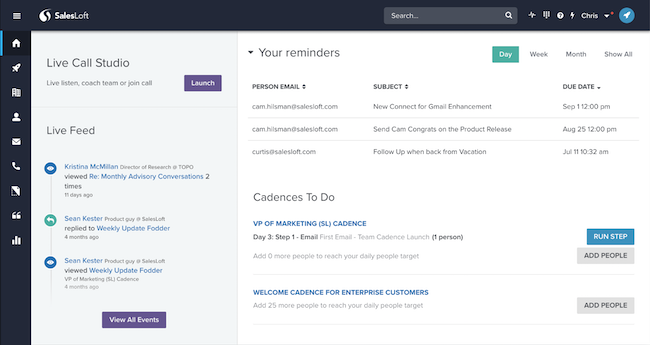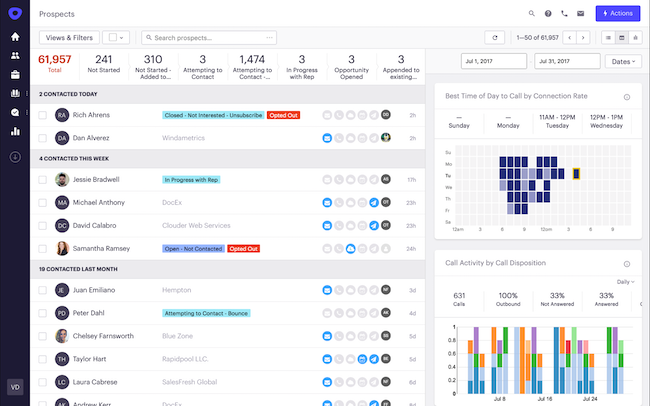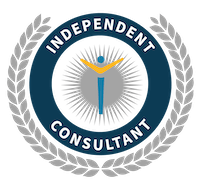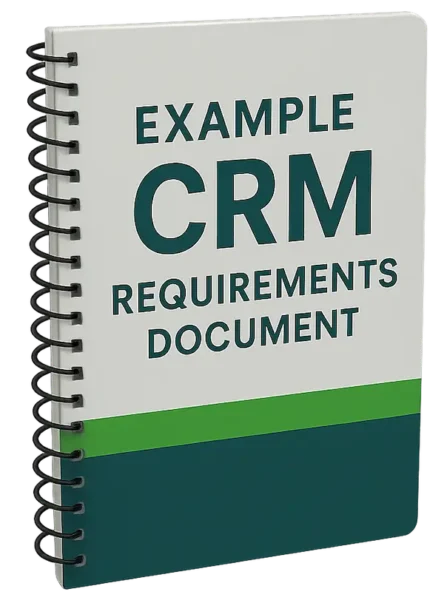A sales engagement platform is a category of software that helps SDRs and BDRs better manage their sales pursuit.
Any seasoned sales rep can tell you that prospects are fickle. Without warning, they can switch from focused engagement to radio silence.
Engaging and re-engaging prospects often requires wading through many different communication channels.
Assuming you can connect with a client or prospect—which is often easier said than done—keeping their attention focused on you is more complicated than ever.
These are the problems that more and more sales reps are crashing into daily. One of the most common solutions to overcome these problems over the last decade has been CRM.
CRM providers have been engaged in an arms race with one other. They all offer their customers new tools and features aimed at making it easier to connect with customers and prospects.
However, another type of solution has gained popularity in recent years. These solutions are known as sales engagement platforms.
What these platforms do, and how they do it, is converting many sales team members into believers.
What Is A Sales Engagement Platform?
Sales engagement platforms are SaaS (Software as a Service) tools designed to combine your business’s communication channels into one place. This means incorporating systems like CRM, email, and social media accounts into one unified user interface.
Once everything has been set up, sales engagement systems allow users to create sequences of coordinated outbound activities across a customized list of channels.
Touches can include emails, texts, LinkedIn connection requests, phone calls, and even mailing physical assets like books or product samples.
Sales engagement software aims to allow sales teams to work more efficiently. Instead of working across multiple platforms simultaneously, sales engagement software puts everything in one place.
On top of this, many sales engagement platforms add helpful features like:
- Email automation
- Voice dialing
- Performance analytics
- Team management
While it can sound a bit complicated on paper, the big takeaway is that sales engagement tools are designed to streamline the sales process.
Popular Sales Engagement Software
Similar to the competition between Salesforce and Microsoft in the CRM arena, there are currently two big names in sales engagement:
SalesLoft
SalesLoft is headquartered in Atlanta and has over 375 employees. They have additional offices in San Francisco, New York City, and Guadalajara, Mexico.

Salesloft has an average user rating of 4.5 out of 5 stars on G2 Crowd based on over 1,200 reviews at the time of writing.
Outreach
Outreach was founded in 2014 and is headquartered in Seattle, Washington. They currently employ over 500 people in 12 different states. They have additional offices in San Francisco and Tampa, Florida.

Outreach has an average user rating of 4.3 out of 5 stars on G2 Crowd based on over 1,300 reviews at the time of writing.
Sales Engagement vs. CRM
It’s important to know that sales engagement software is not designed as a CRM replacement. Just the opposite is true. Sales engagement software is intended to work alongside and enhance the usability of CRM.
Both Outreach and SalesLoft, for example, have dedicated pages on their websites to explain how they integrate with Salesforce.
We spoke with Max Altschuler, former Vice President of Marketing at Outreach, to further clarify and understand the relationship between CRM and sales engagement solutions.
For those who don’t have time to listen to the full interview, here’s one of the more intriguing things Max had to say about integrating and using CRM with a sales engagement platform like Outreach:
We use Salesforce and [we] integrate with both Salesforce and Dynamics. We think [CRM] is an important piece of the puzzle, but it’s your data warehouse. Outreach is your system of engagement. All the activity happens in Outreach.
In our interview, Max acknowledges that many companies are entrenched and reliant upon their existing CRM systems. Sales engagement providers recognize this and have crafted their solutions to capitalize on CRM rather than trying to replace it outright.
Another interesting use case we discussed with Max was for contract renewals. As Max rightly points out:
It is not best practice to email someone or call someone two days before renewal and say ‘Hey, it’s the 29th, on the 31st we’re going to bill you for thirty-five grand.’ That’s not best practice anywhere.
With sales engagement software, account managers can create custom, personalized sequences that engage clients in the run-up to renewal. This dramatically reduces the chances of clients feeling surprised or ambushed by a bill for services.
Is Engagement Software Right For Your Team?
When deciding if sales engagement software is right for your business, a lot will depend on how your organization manages its client and prospect data.
If your business is not currently using a CRM solution, you’ll need to address that issue first. CRM is often the foundation upon which sales engagement tools are built.
Implementing sales engagement tools will be considerably more difficult if your business doesn’t have a cloud-based data management or data warehousing solution.
If your organization is currently using a CRM solution, take the time to thoroughly discuss and document your requirements for a sales engagement platform before jumping into vendor evaluations.
Sales engagement software is not a cure for a poorly implemented CRM system. It won’t fix insufficient data, and it won’t increase CRM user adoption rates.
Sales engagement software can help companies maximize the value of their CRM system or other data warehousing tools more efficiently.




